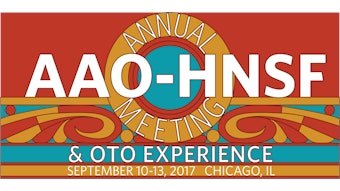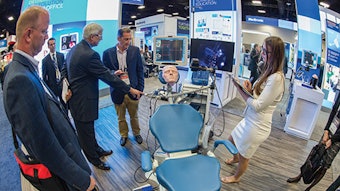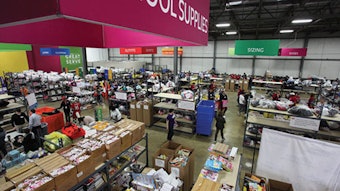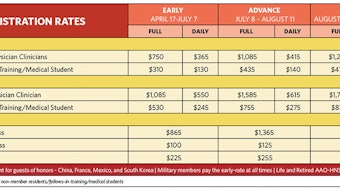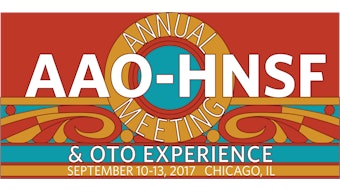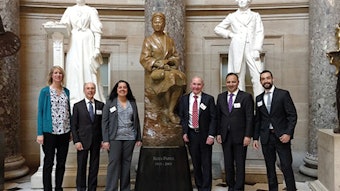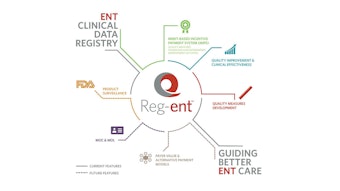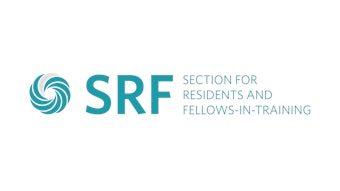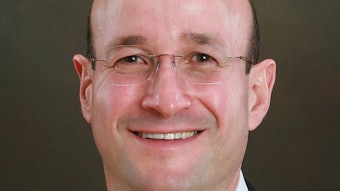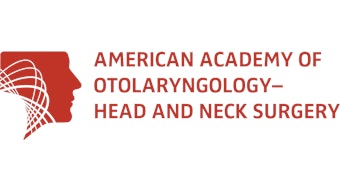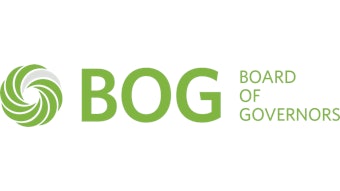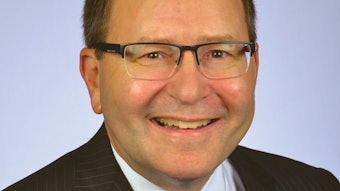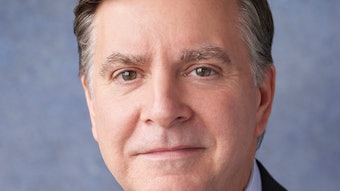Annual Meeting & OTO Experience: The future of medicine
Daniel Kraft, MD, is a Stanford- and Harvard-trained physician-scientist, inventor, and entrepreneur who founded and chairs Exponential Medicine, where he is executive director.
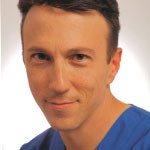 Daniel Kraft, MD
Daniel Kraft, MDOpening Ceremonies Keynote Speaker
Daniel Kraft, MD, is a Stanford- and Harvard-trained physician-scientist, inventor, and entrepreneur who founded and chairs Exponential Medicine, where he is executive director. He will be the keynote speaker at the AAO-HNSF 2017 Annual Meeting & OTO Experience Opening Ceremony. Learn more about his perspective on the future of medicine.
Q: What inspired you to explore the future of medicine?
A: I’m trained in internal medicine, pediatrics, hematology-oncology, and bone marrow transplantation. I’ve always had an interest in many fields and technologies. Going through medical training, fellowships, and serving as both research and clinical faculty, you see what is broken in healthcare, but you also see the arrival of many exciting technologies—from wearables to robotics to artificial intelligence. As Chair of Medicine at Singularity University, we look at how different faced-paced fields are converging and how by leveraging emerging technologies we can address the pain points and grand challenges across healthcare. The future of medicine is going to be a combination of getting people out of their silos and rethinking new and current tools, information, and incentives.
Q: What do you hope attendees will learn from your keynote presentation?
A: I hope attendees come away with a new mindset and appreciation for the speed and pace of technologies, ranging from connected and mobile digital health and beyond. Technology is moving quickly, often exponentially. With the emergence of technologies like artificial intelligence, the internet of medical things, 3D printing, and consumer genomics, we’re going to see a great deal of change.
I hope we can think about how physicians can be the disrupters and not the disruptees. It’s important that all of us help catalyze the change and leverage the technology of today to enable a smarter, better future of health and medicine.
Q: How can otolaryngologists help shape the future of healthcare?
A: Otolaryngologists are at a terrific crossroads of medicine. They see patients across the spectrum—kids to adults and everything from cancer to reconstructive surgery. This is a field where physicians can use many existing technologies to address all elements of otolaryngology practice, from smart prevention; to better ways to personalize, plan for, and execute interventions, to improving ways to follow up and engage patients and caregivers.
Q: How can technology reshape medicine?
A: With many of the new tools that are in our pockets and on our wrists today, we can move from an intermittent and reactive mode of ‘Sick Care’ to a more continuous, proactive, and precise approach. Integrating emerging tools and technologies into clinical care can create ongoing information to engage the patient, inform the clinician, and make medicine more evidence-based and less reactive. Technology allows us to connect the dots between the patient, big data, medical literature, and decision-making, from diagnostics to therapy.
Q: How can otolaryngologists leverage these emerging trends to empower patients?
A: Patients are becoming more empowered to own their own healthcare. Mobile apps and wearable devices can be used to develop smarter ways to engage patients in their care. Technology is not one-size-fits-all. User interfaces need to meet the patient’s education, language, and culture.
Today, we can move beyond the printed handout to much more tuned platforms that can give digital touchpoints, and even digital empathy, to help patients and their caregivers improve their healthcare journeys.
Q: Physicians today are facing regulatory issues and a growing amount of paperwork. How can technology help alleviate some of these challenges?
A: Clinicians often spend far more time charting than face-time with our patients. Technology can often be overwhelming and does not always improve the clinical experience. Fewer clicks on the computer will lead to more seamless care. We need to effectively integrate technology and synthesized actionable information into clinician workflow using design thinking.
Q: Reg-ent℠ is AAO-HNSF’s otolaryngology-specific clinical data registry. It serves as the foundation for quality reporting, measures development, quality improvement, clinical and product research, and support for maintenance of certification and licensure. Why are data registries important in today’s ever-changing healthcare field?
A: Data is becoming the lifeblood of health and medicine. We need to do a much better job of opening the data silos, which will enable data to flow in less restricted ways, while retaining privacy issues.
Having data registries, like Reg-ent, is critical. Registries help share information quickly so that both data and discoveries can lead to smart and improved point of care and general clinical practice. As we move to an era of participatory healthcare, we should be encouraging everyone to become data donors, not just users of data.
Q: Is there anything else you would like to add?
A: It’s an exciting time with the acceleration of technology. It’s up to all of us in healthcare to look for ways to integrate technology across the spectrum, from wellness, to diagnostics, to therapy, to clinical trials, while also maintaining our need for scientific rigor and proof of value.
Otolaryngologists touch so many elements of clinical care and can be great contributors and catalysts to the future of health and medicine.
